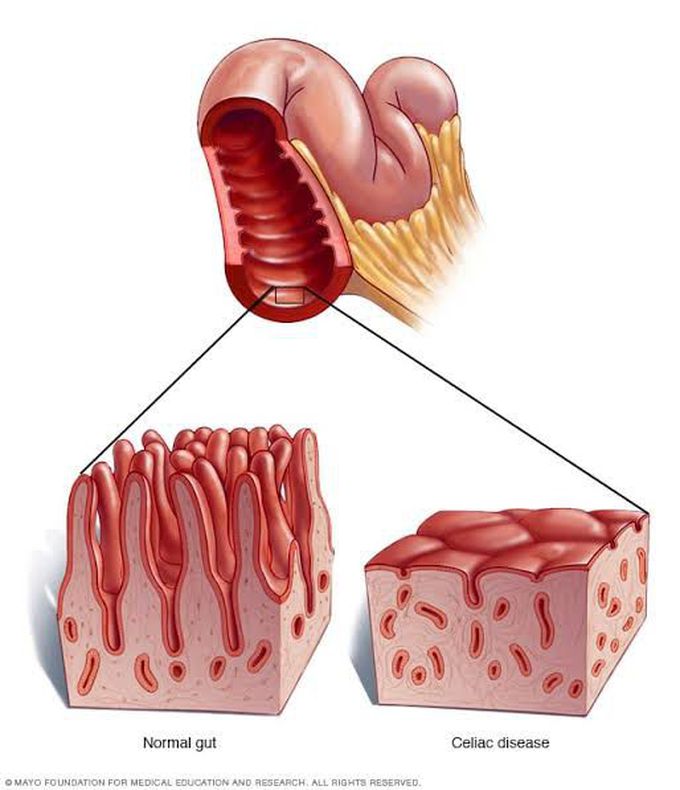


Treatment of celiac disease
More Information Celiac disease care at Mayo Clinic Capsule endoscopy Treatment A strict, lifelong gluten-free diet is the only way to manage celiac disease. Besides wheat, foods that contain gluten include: Barley Bulgur Durum Farina Graham flour Malt Rye Semolina Spelt (a form of wheat) Triticale A dietitian who works with people with celiac disease can help you plan a healthy gluten-free diet. Even trace amounts of gluten in your diet can be damaging, even if they don't cause signs or symptoms. Gluten can be hidden in foods, medications and nonfood products, including: Modified food starch, preservatives and food stabilizers Prescription and over-the-counter medications Vitamin and mineral supplements Herbal and nutritional supplements Lipstick products Toothpaste and mouthwash Communion wafers Envelope and stamp glue Play dough Removing gluten from your diet will gradually reduce inflammation in your small intestine, causing you to feel better and eventually heal. Children tend to heal more quickly than adults. Vitamin and mineral supplements If your anemia or nutritional deficiencies are severe, your doctor or dietitian might recommend that you take supplements, including: Copper Folate Iron Vitamin B-12 Vitamin D Vitamin K Zinc Vitamins and supplements are usually taken in pill form. If your digestive tract has trouble absorbing vitamins, your doctor might give them by injection. Follow-up care Medical follow-up at regular intervals can ensure that your symptoms have responded to a gluten-free diet. Your doctor will monitor your response with blood tests. For most people with celiac disease, a gluten-free diet will allow the small intestine to heal. For children, that usually takes three to six months. For adults, complete healing might take several years. If you continue to have symptoms or if symptoms recur, you might need an endoscopy with biopsies to determine whether your intestine has healed. Medications to control intestinal inflammation If your small intestine is severely damaged or you have refractory celiac disease, your doctor might recommend steroids to control inflammation. Steroids can ease severe signs and symptoms of celiac disease while the intestine heals. Other drugs, such as azathioprine (Azasan, Imuran) or budesonide (Entocort EC, Uceris), might be used.

